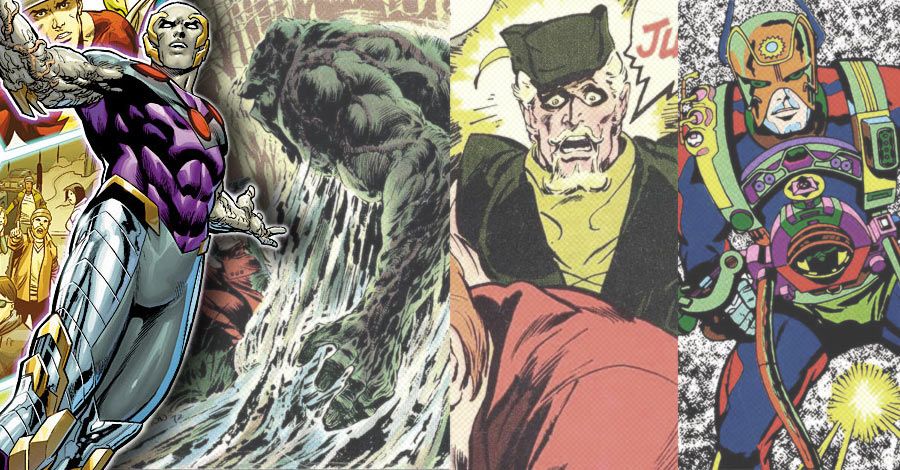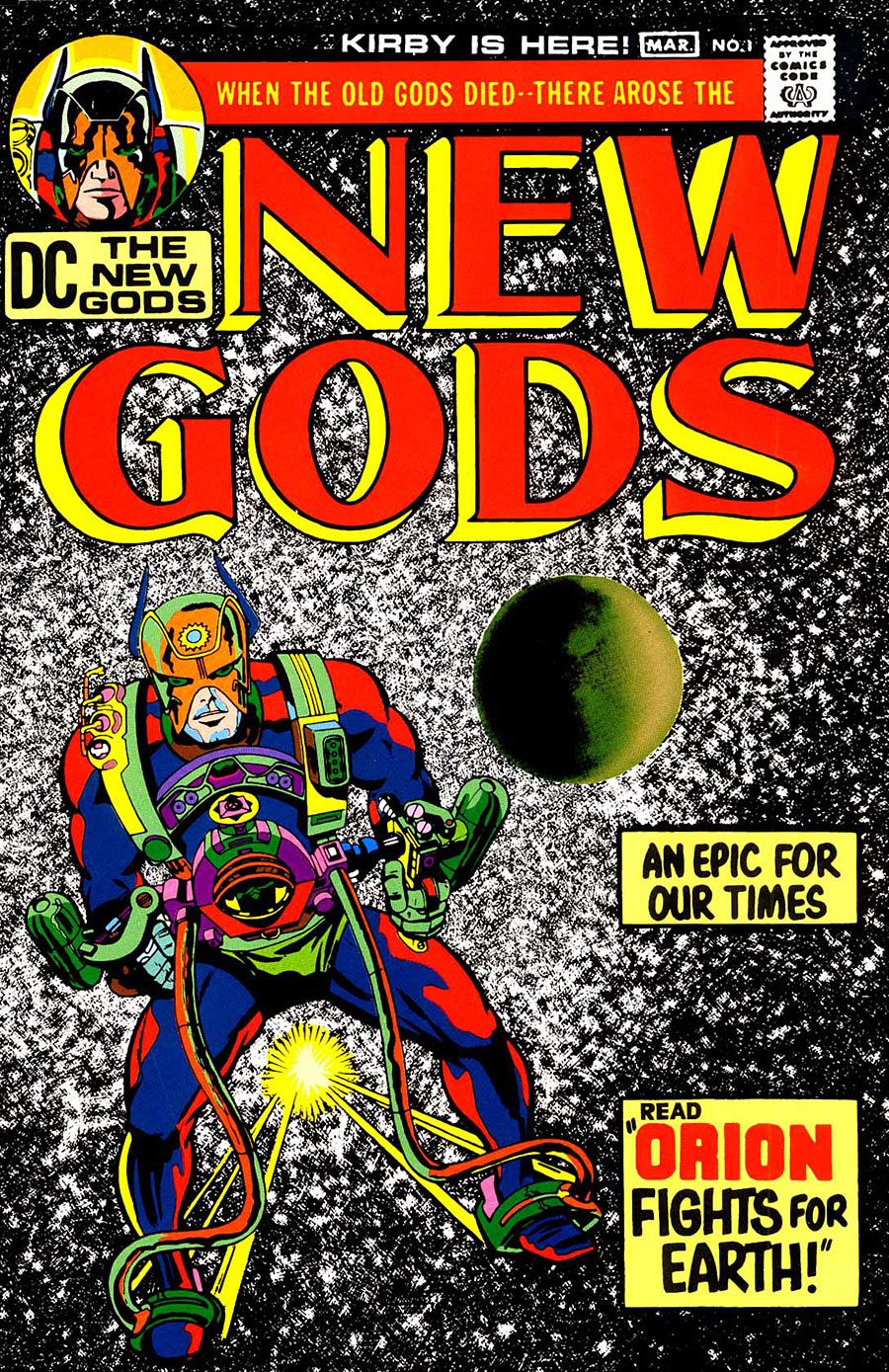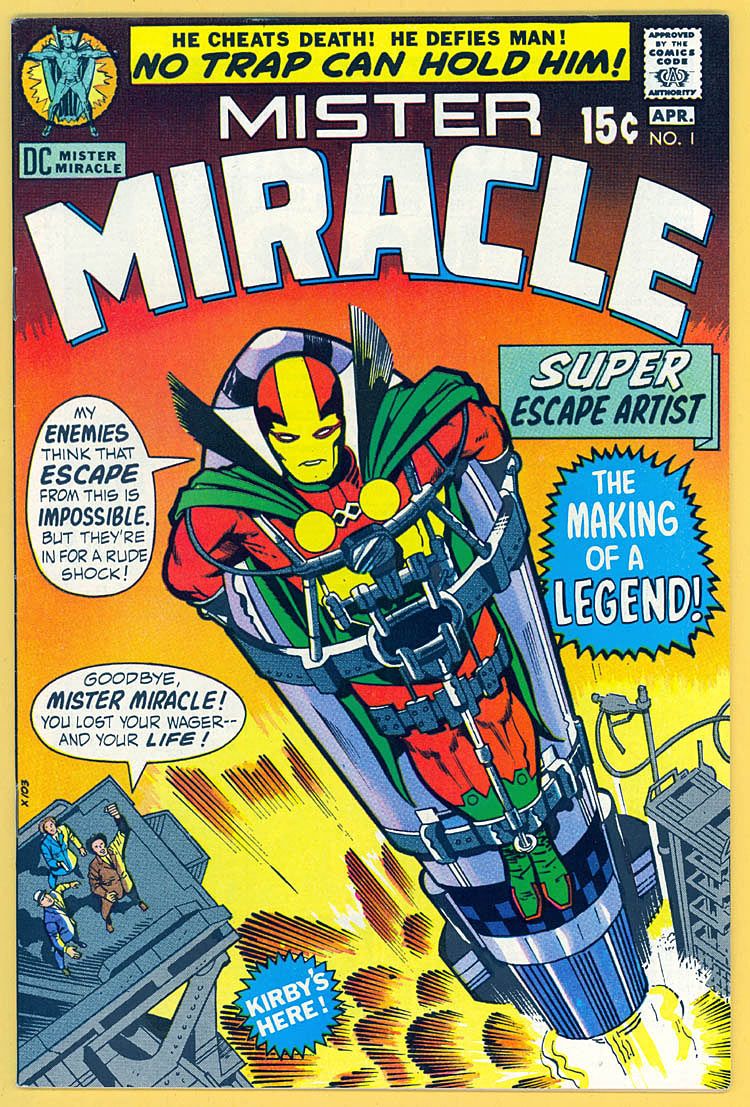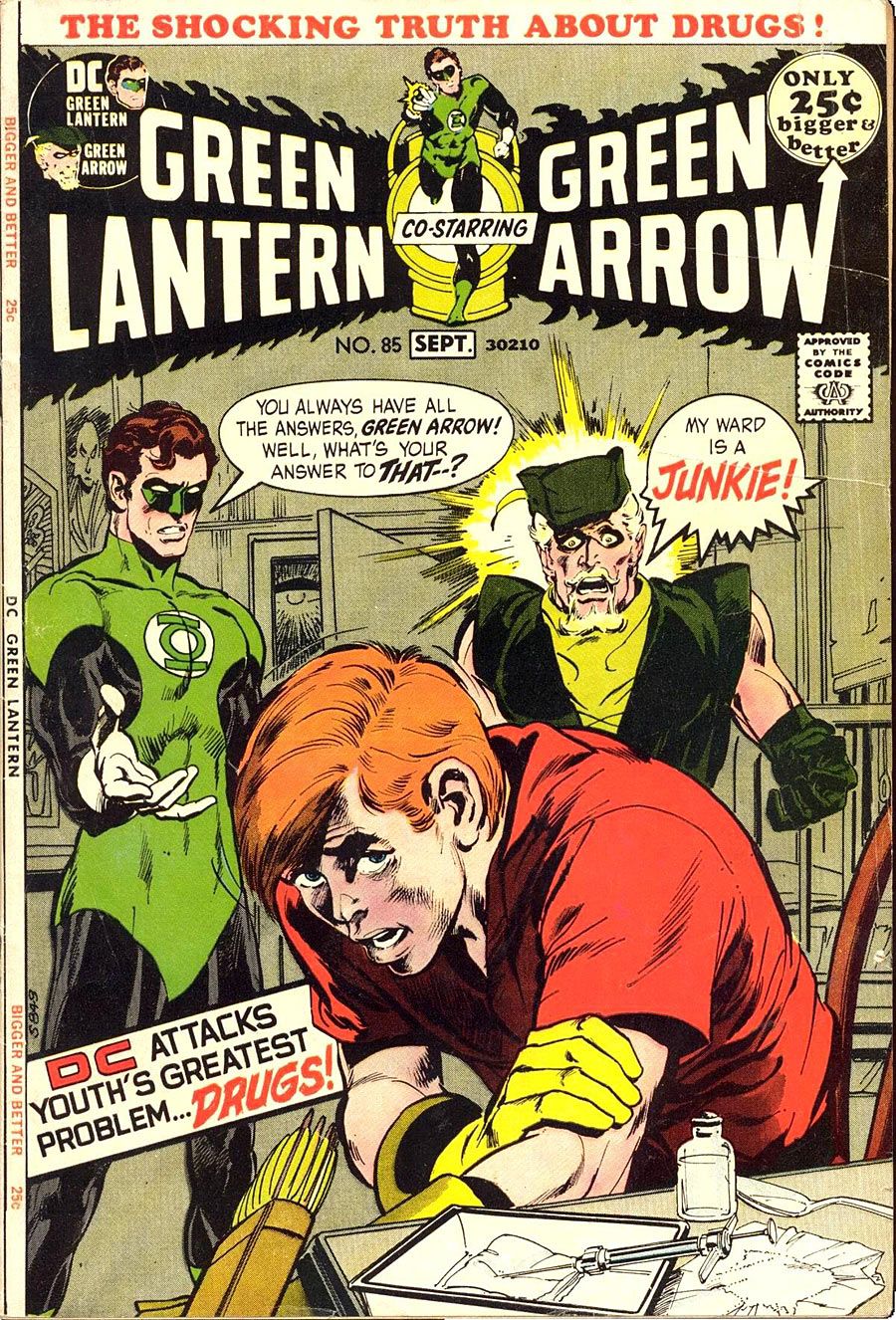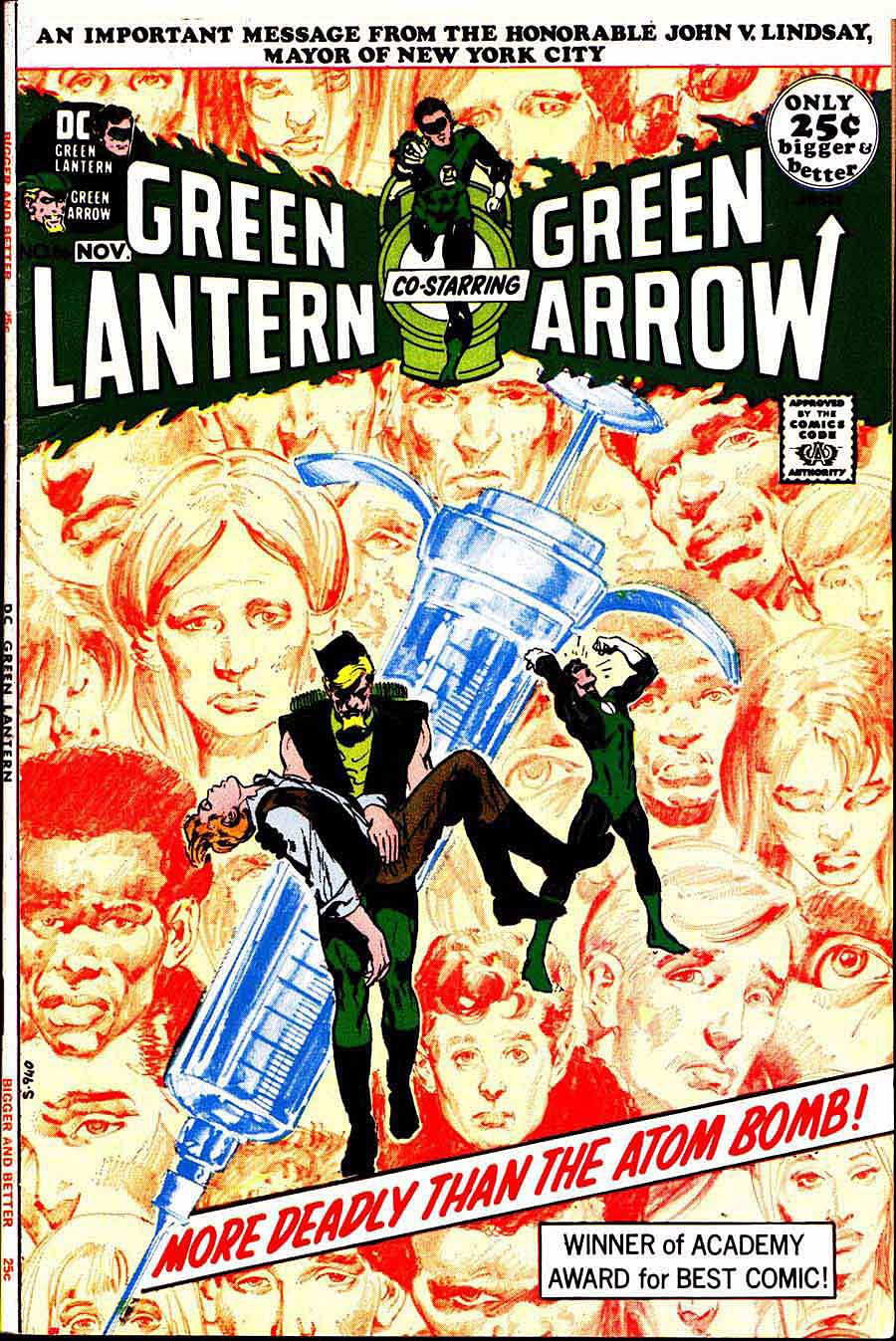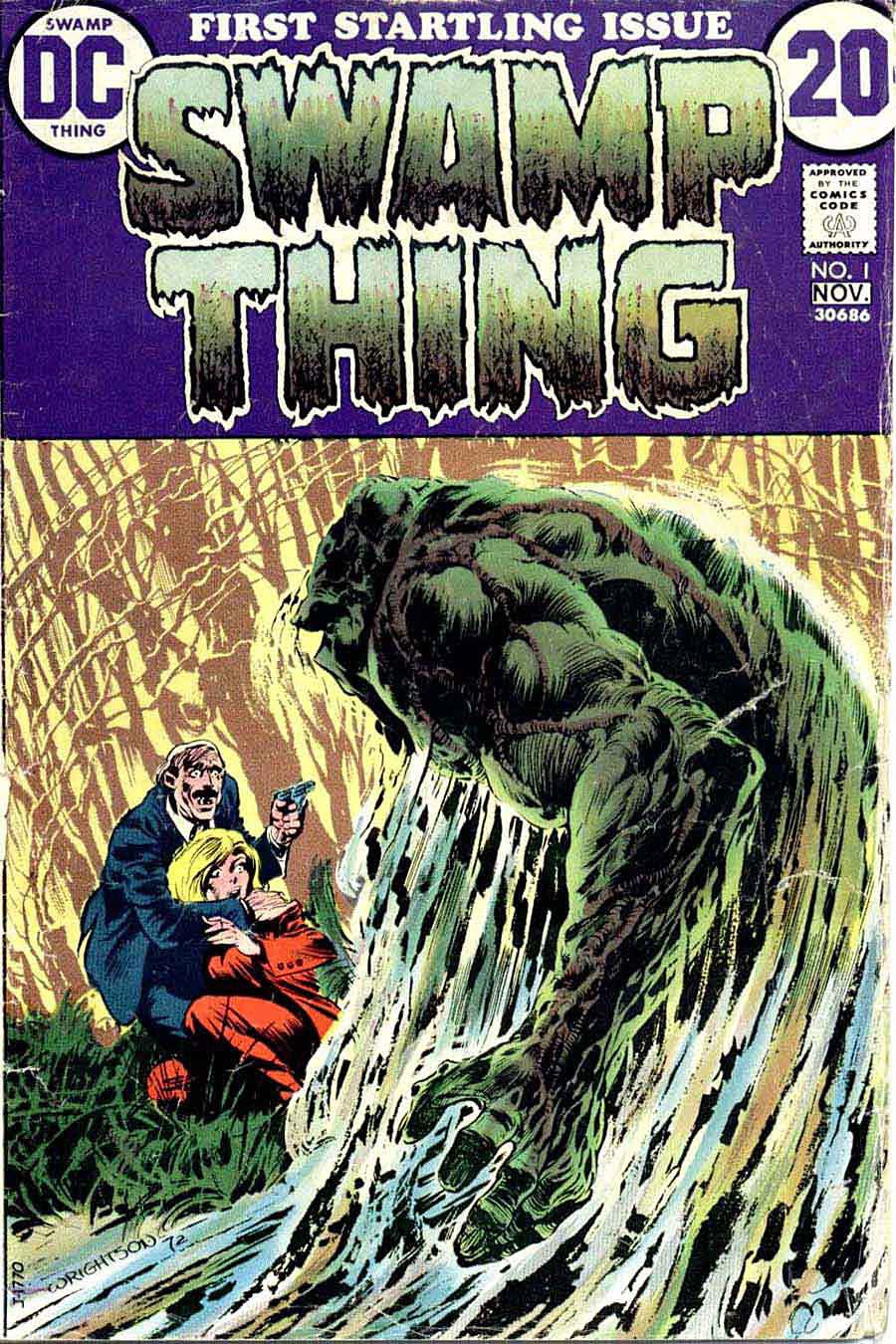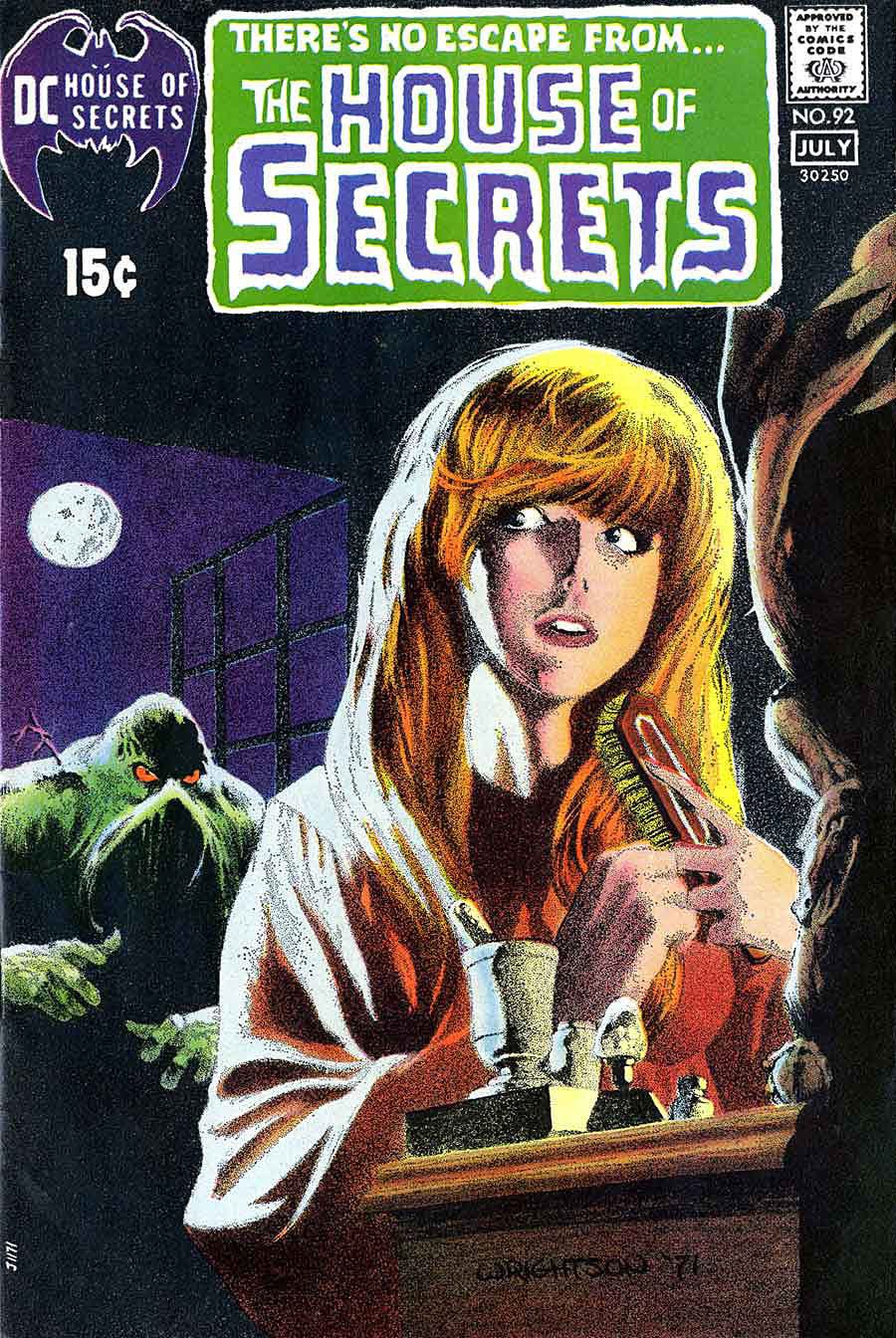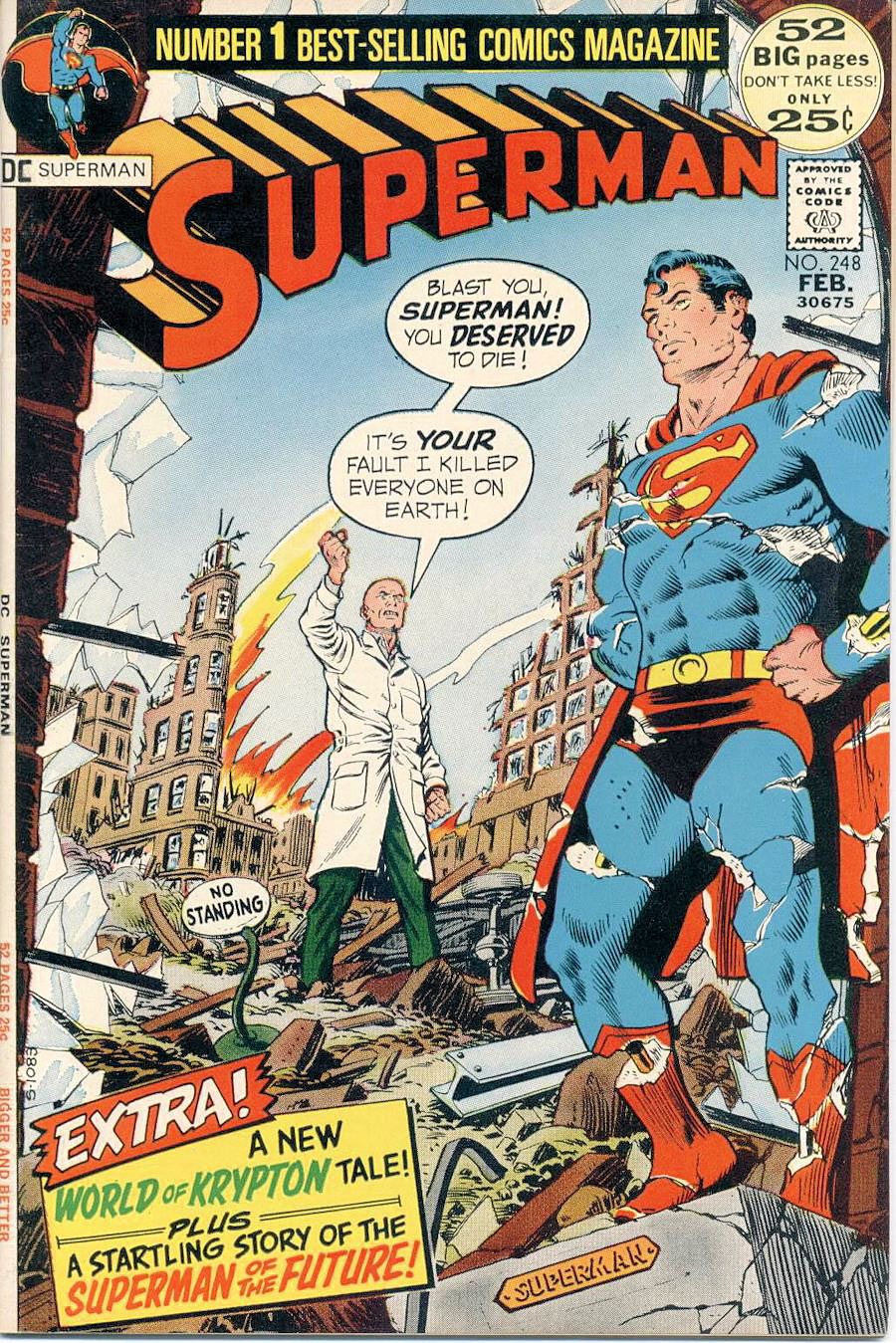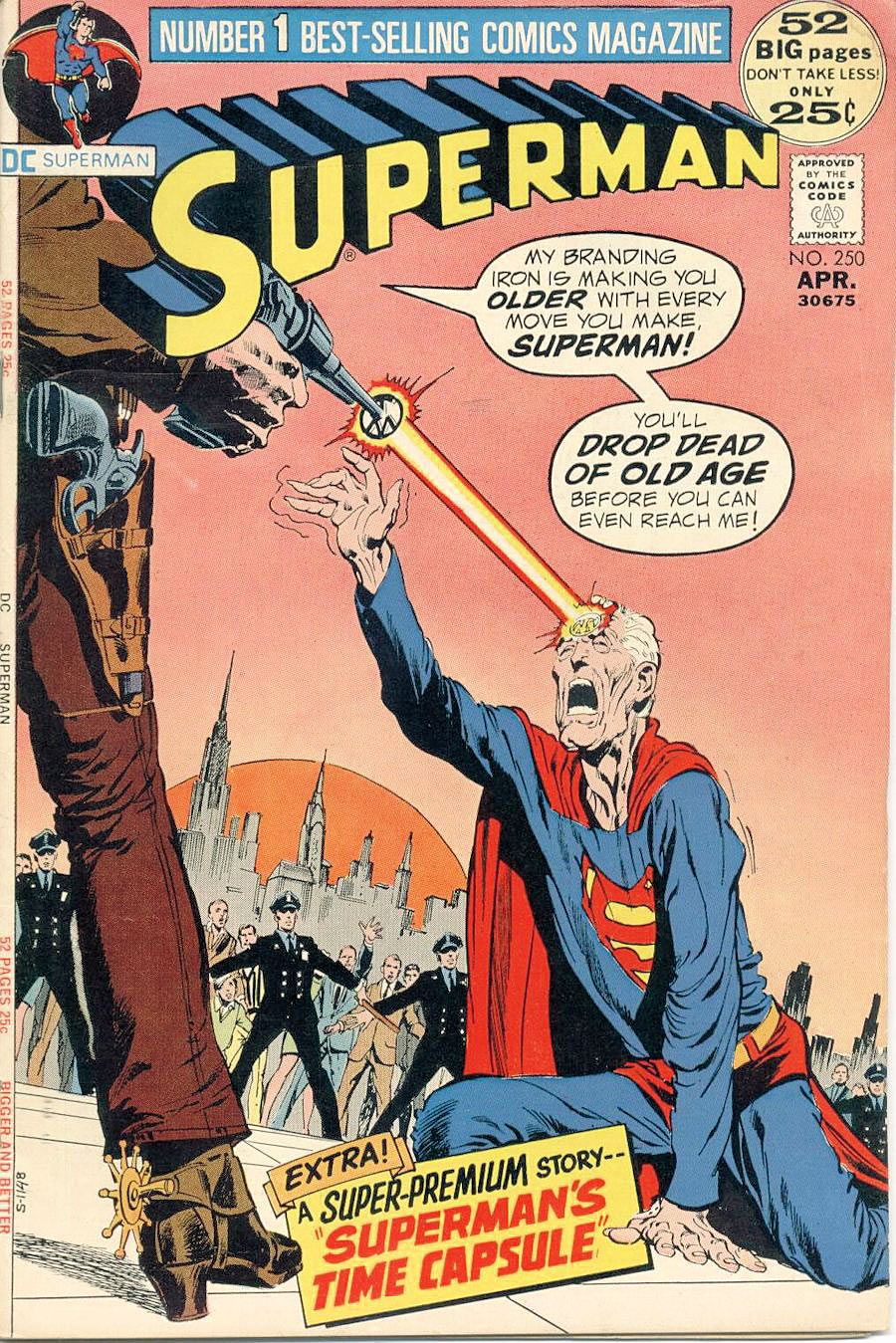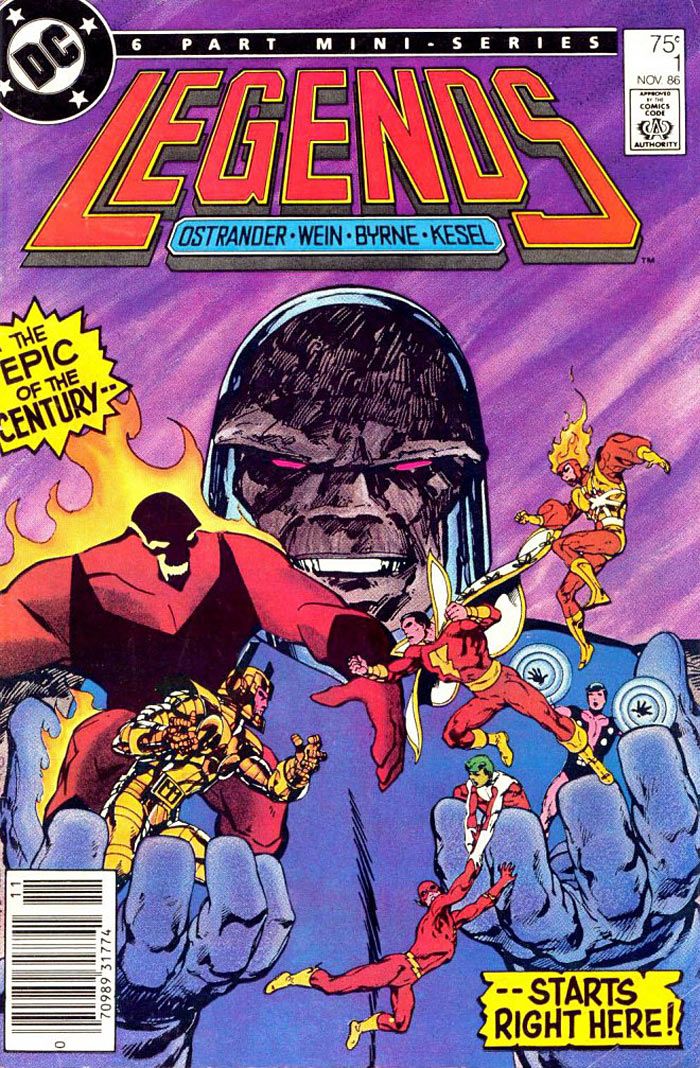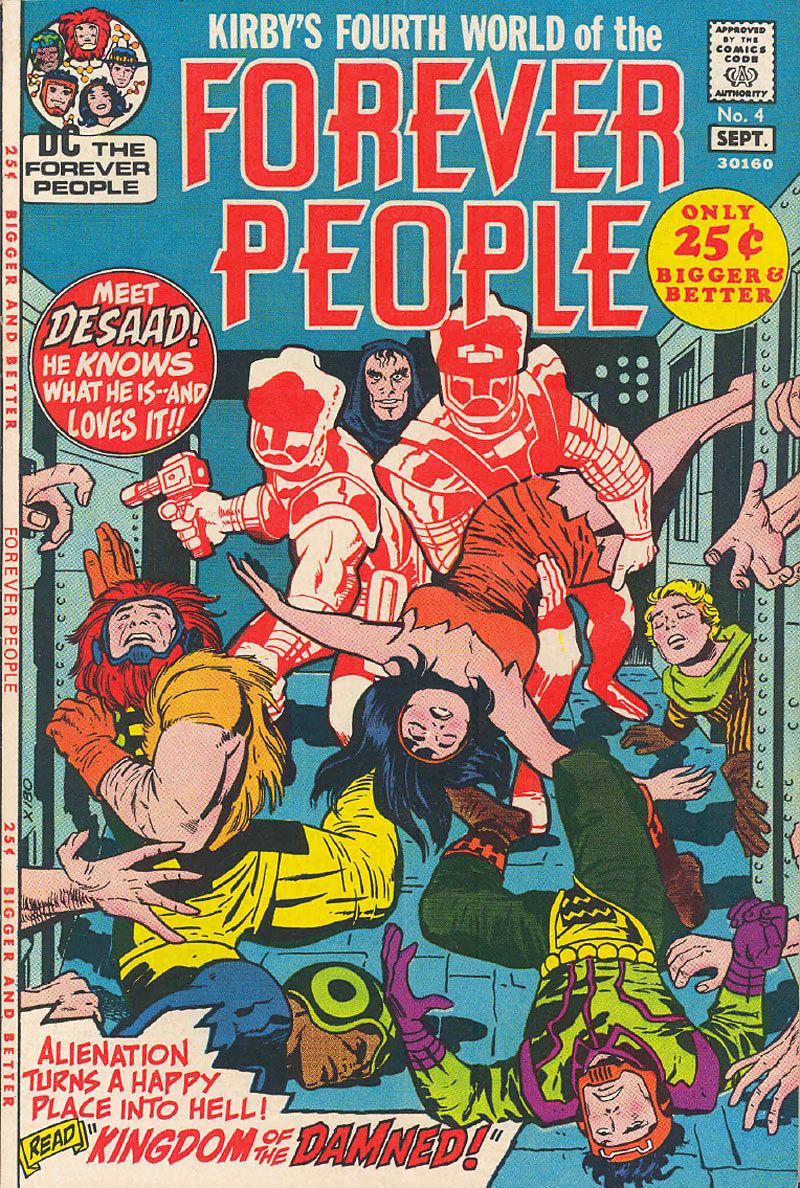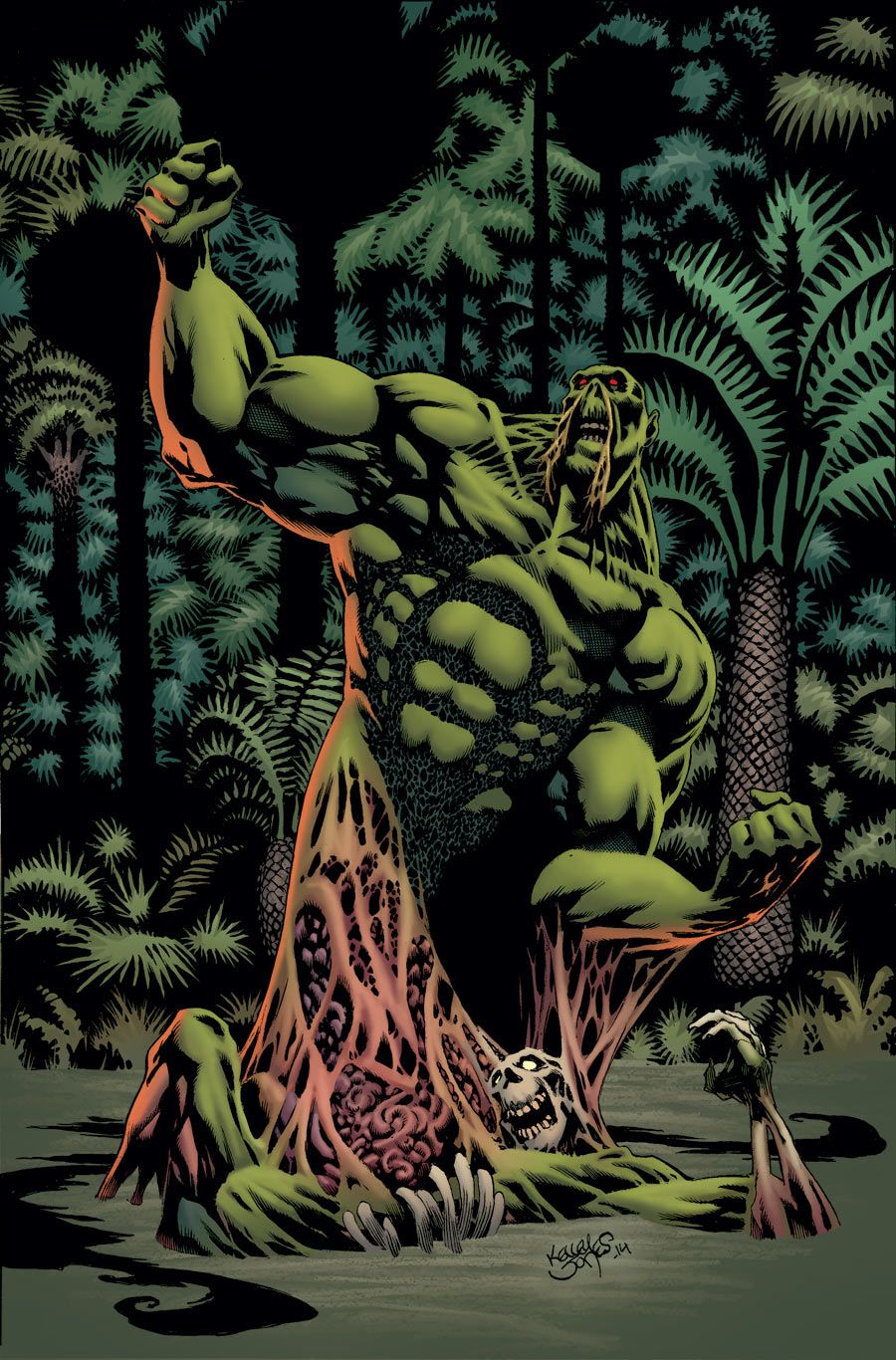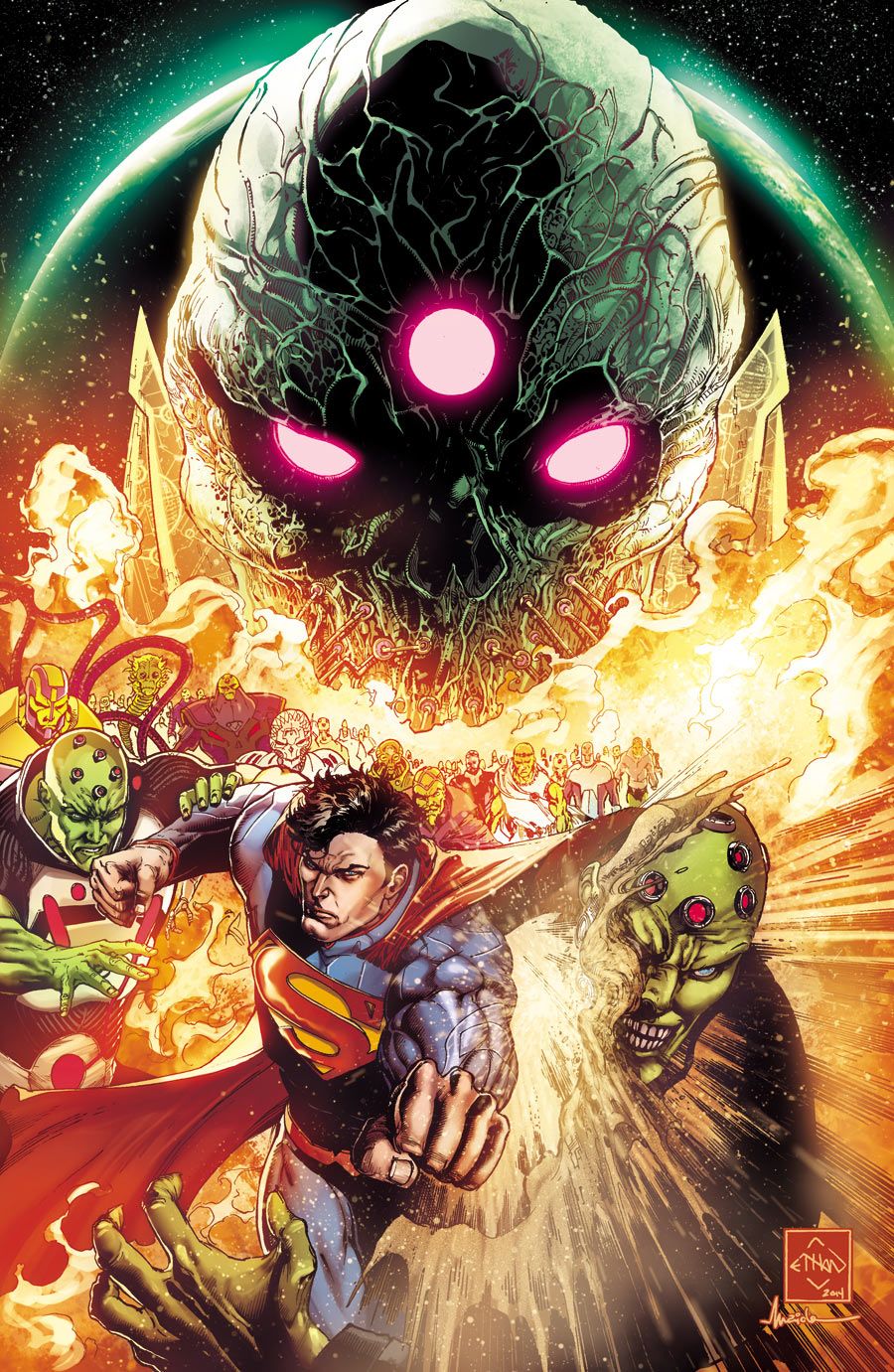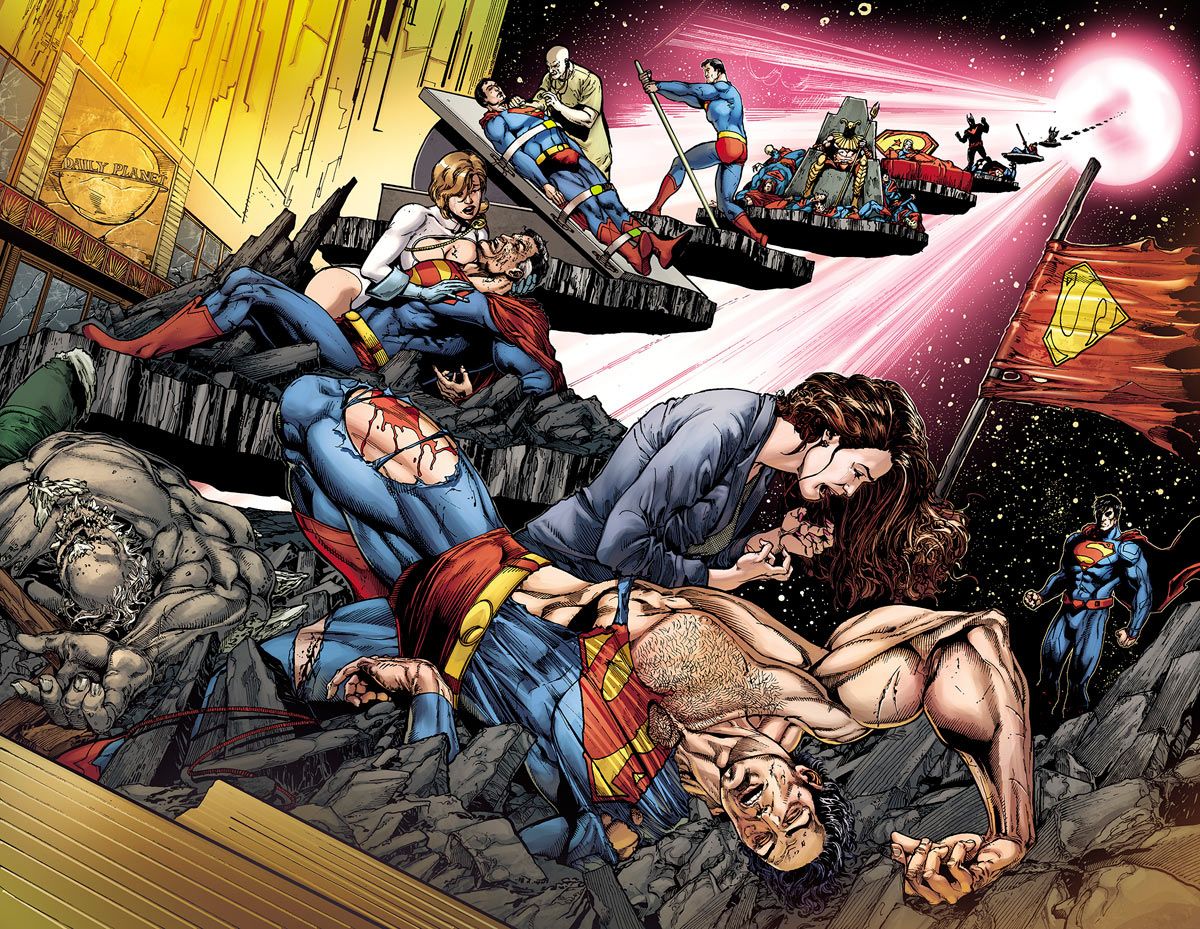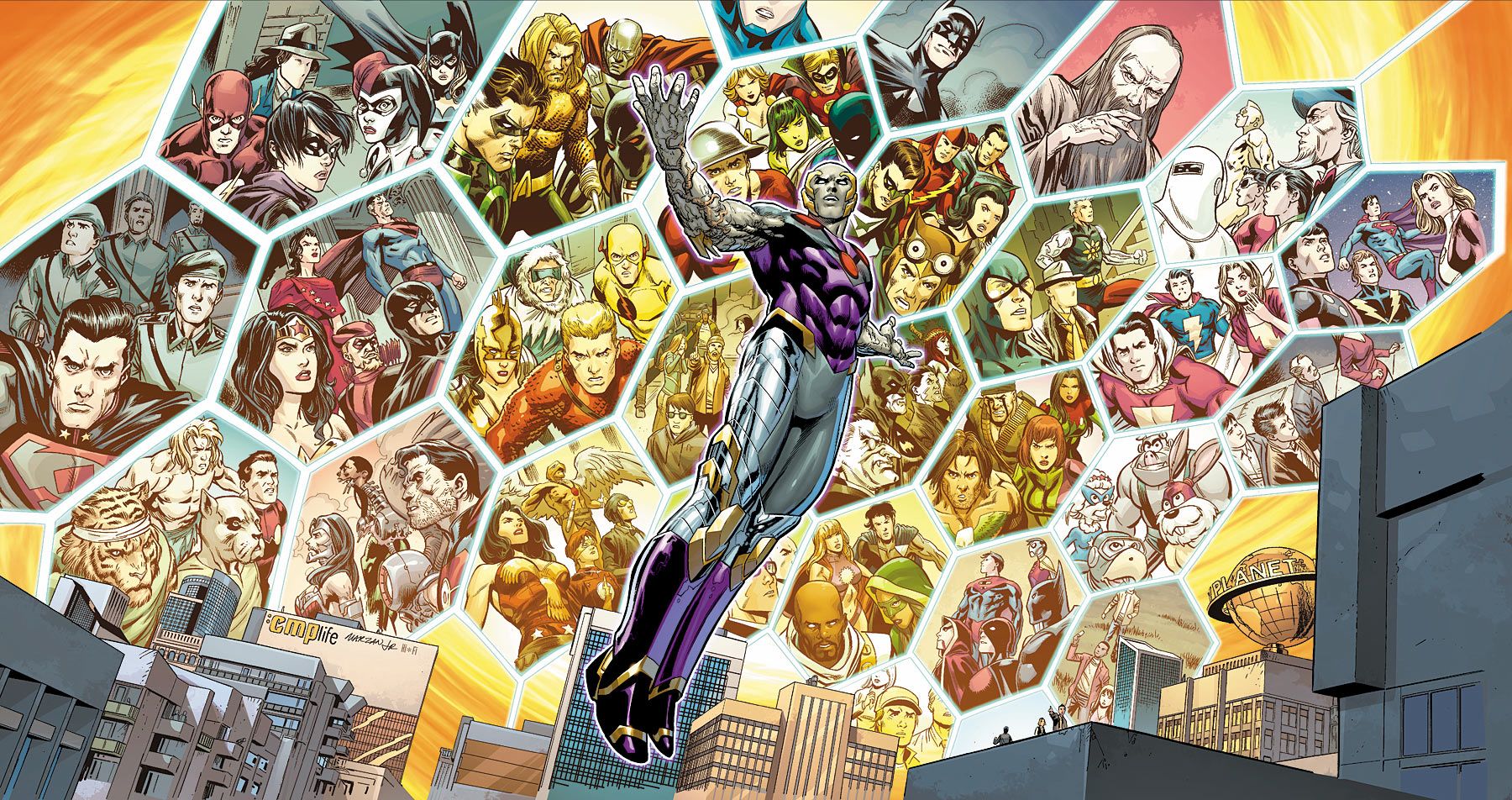Welcome to CBR's first of four CONVERSATIONS OF CONVERGENCE with DC Comics Co-Publisher Dan DiDio.
As comic book readers, retailers, reporters and reviewers converge on DC Comics' event maxi-series, over the next few weeks, DiDio and CBR staff writer Jeffrey Renaud are discussing a specific decade from DC Comics' recent past, searching for answers about what drives an event like "Convergence."
Dan DiDio Reveals New "Convergence" Details, Art in Event Trailer
For each conversation, a comic book creator that was integral to the publisher's success during the decade in question will join the discussion.
This week, CONVERSATIONS OF CONVERGENCE looks back at the 1970s, a decade which included the birth of the New Gods -- the mythic heroes and villains from the Fourth Word created by the legendary Jack Kirby who continue to play a major role in the DC Universe. Joining the conversation is industry legend Len Wein, who not only co-created Wolverine for Marvel Comics but Swamp Thing for DC and also served as editor on the game-changing 1980s series, "Watchmen," and scripted the crossover event "Legends," featuring Darkseid, who remains the biggest and baddest of Kirby's New Gods.
Check out the conversation with DiDio and Wein via a video below, as well as a full transcript of the conversation.
CBR News: Dan, we hear a lot about the Golden Age of Comics and the Silver Age of Comics. With the dawn of 1970s came the Bronze Age of Comics -- perhaps not as catchy as the Golden or Silver Age, but nonetheless vitally important to the style of stories being told today by DC Comics.
Dan DiDio: The 1970s are a really fascinating era. I've spent so much time analyzing this era and once I joined DC, I was able to speak to so many people that were instrumental in building the line of the books and the types of stories that came out in those days attracted so many of the readers that are still reading comics today. If you go back and look at the top end of our reader scale, so many of our readers came in during the early seventies and gravitated to comics and stuck with them because of the way the stories were told and they were crafted -- the intelligence, the relatability, the adventure, the excitement, the expansiveness that came in the 1970s have really held onto us and has been fueling the fire ever since.
Len Wein: And let's not forget the sense of series. Unlike the old comics of the forties, fifties and sixties, by the seventies, you really weren't reading a book anymore. You were reading a series. Every story advanced the story that came before it, which had not been the case previously.
DiDio: That's really important because that's something that we continue to strive for. When we talk about continuity, it's really the continuity of story and character and how they progressed and moved forward that really kept you on the edge of your seat waiting for those next issues.
Len, in the 1970s, you were working on your classic run of "Swamp Thing" with Bernie Wrightson. Meanwhile, Denny O'Neil and Neal Adams were telling groundbreaking stories in the pages of "Green Lantern/Green Arrow." What was the driving force behind telling more "relevant" storylines about topics like drug abuse and poverty when exploring characters like Swamp Thing and some of the other ones that you were writing at the time like Superman, The Flash and the Phantom Stranger?
Wein: It became an unspoken competition. Everybody was trying to outdo the guy before him. I don't think any two of us ever sat down and said, "I'm going to kick your butt next month." [Laughs] But we all felt that sense of enthusiastic competition. It was, "My God, I can't believe what Denny did last month on 'Green Lantern.' I've got to be able to do something like that next month in my own book."
Did something happen that universally made creators think, 'We can deal with these larger issues in the pages of superhero comics'?
Wein: I think it was a combination of several things, not the least of which that the Comics Code changed. Some of us will remember the Comics Code Authority.
DiDio: I got to kill it. [Laughs] I got to put the file nail in the Comics Code.
Wein: God bless you, sir, for the work you do. [Laughs] But that was really a lot of it. A lot of things had not been permitted before by the Comics Code, which came in during the fifties. And it really led to the Batman versus aliens stories that you got in the 1960s. By the 1970s, we were doing stories that we felt needed to be told and occasionally, the Comics Code Authority would say, "That's lovely but you're violating the code. You can't do that." And eventually, guys like us and Stan Lee finally said, "It that's going to be a problem, screw you. We're going to do them anyway and we'll just do them without the Comics Code Authority." And the world didn't come to an end. And we started to do more and more.
DiDio: The interesting thing about the Comics Code though was what it did do -- it defined a box, which everybody was put in. And where you get a lot of creativity from is a lot of people pushing against the edges of the box and trying to find their way around it. Trying to find the outs to those stories. It forced people to think a lot more about how they were able to tell stories giving the confines of the code itself. You find this incredible wave of creativity coming out because people are finding ways around the Code in new and interesting ways to tell comic book stories.
I think one advantage of the Code was really forcing people to work harder to come up with smarter ways to tell just as impactful stories as they do today.
Wein: I agree. We would do the weirdest crap to get around things.
DiDio: [Laughs]
Wein: When I was doing "Brother Voodoo" over at Marvel, it was a book about voodoo and zombies and we weren't allowed to use the word "zombie" -- which is wonderful when you are telling a book about zombies. I remembered an old Robert E. Howard story that I had read many years earlier called, "Pigeons from Hell." They had zombies but for some reason that I can no longer recall, he called them 'zuvembies,' so I called my characters 'zuvembies' and the Code didn't blink.
DiDio: There you go. [Laughs]
Wein: They were zombies but we just called them something else and got away with it.
Robert E. Howard's editor probably told him not to use the word "zombies." [Laughs]
Wein: [Laughs] Exactly. He said, "Twenty years from now, there will be a thing called the Comics Code and you don't want to mess with it."
Dan, another big part of the 1970s was Jack Kirby moving over to DC Comics and creating the New Gods and the Fourth World titles. While the New Gods may not have the same pedigree of some of Kirby's other co-creations with Stan Lee like the Fantastic Four and the Incredible Hulk, Darkseid, the Forever People and Mister Miracle continue to play very active roles in the DC Universe. What was his impact on DC Comics in the 1970s? And when you talk to creators today about working on a character Jack Kirby created, yourself included, is there another level of magnitude that comes with such an assignment?
DiDio: What's funny is that if you look at comics from the sixties and into the seventies -- and maybe from a little before that -- one of things that you see as different between Marvel and DC is the dynamics of the art style that was really in place at Marvel Comics, which was really pushed forth by Jack Kirby and Steve Ditko. It was so prevalent in those books and really brought a lot of their characters to life early on. DC, because of Julie [Julius] Schwartz and a lot of other driving forces, was very science fiction driven and leaned very heavily on the science fiction writers and ideas. And the art wasn't nearly as dynamic until you get someone like Neal Adams, who comes in and just explodes on the page.
Jack Kirby comes to DC and then you get this other incredible burst of visual creativity. You have to remember, and I always have to say this, Jack Kirby is writing, drawing and editing a book a week -- one full comic every week. The idea that you are going to be able to sit there and really dwell on a story or expand on it or really get the nuances that you want to see in a story, you know what, you're lucky that you're just getting the pages done. You're getting so much more emotion, so much id on the page. There is this incredible explosion of ideas and they might seem partially formed or just raw in their own nature but there is something entirely compelling about it. And honestly, when Kirby came to DC, I was mostly reading from DC's point, the horror stuff. Len's "Swamp Thing" brought me into DC for the most part. And I read a lot of the books that were on the edge -- a lot of the peripheral ones. I loved "House of Secrets, "House of Mystery." I loved the ghost books and The Phantom Stranger and all of these things but really, the next thing that pulled me deeper into DC was the Jack Kirby material. I literally followed every single book that he did because I was so caught up in it. And I was so caught up in the dynamics of his art style. To this day, it's still totally influential on me.
Len, you famously revived the X-Men for Marvel Comics in 1975 but you also worked with the New Gods for the "Legends" miniseries in the 1980s. Did you have a relationship with Jack Kirby?
Wein: Oh God, yes. I knew Jack from the time that I was 12 or 13 years-old. He lived in the neighborhood next to my neighborhood. I found out through various machinations the whys and wherefores and Marv Wolfman and I, gullible little children that we were, wandered over to Jack's house by bike one Saturday morning, introduced ourselves, knocked on the door, and said, "Hi, we're big fans of Jack. We just wanted to come by and say, 'Hello.'" And Roz [Rosalind] Kirby being the wonderful über-mama she was, invited us in for milk and cookies and it became a ritual. Many of our Saturday afternoons were spent just sitting over at Jack's house just watching him draw. [Laughs]
DiDio: That's amazing.
I don't know why you would get into comics as a job after that. [Laughs]
Wein: It was funny. When I was sick as a 17-year old and Jack and Roz were going to visit me at the hospital to say "hi" and see how I was doing, Jack had, two weeks earlier, decided that he was going to grow a beard. He'd never done one. He thought he'd be interested in seeing how he would look with a beard. So he was two weeks into a beard, and Dan, as you and I know with facial hair, two weeks into a beard is not a good place to be. They were literally getting ready to leave the house and Roz looked at Jack and said, "What are you doing?" And he said, "I'm getting ready to go see Len." She said, "No, you're not. You're not going to see him looking like that. You look like a street bum. Shave the dame beard off." He said, "But I..." She said, "Shave it off." He said, "Yes, dear." And for the rest of our lives, every time I ran into Jack, he says, "You know that you owe me a beard."
[Laughs] Dan, what role do the New Gods play in "Convergence?" Or what about post-"Convergence?"
DiDio: None. We used the New Gods pretty heavily leading into it with the "Earth 2: Worlds End" series. We saw a lot of Darkseid and a lot of Apokolips and on the other end of the "Convergence" story, we are going to get a chance to see the Darkseid War from Geoff Johns and Jason Fabok in the "Justice League" book. But in "Convergence" itself, we really wanted to give the spotlight to different characters. And the reason why is this: the conceit behind the series is that these are cities grabbed at the moment of their destruction or the end of a particular timeline. And for me, there is no end for the New Gods. There is no end for any of the Kirby creations. They will always continue on. They are infinite and therefore, have no place on a planet where things have been picked off at a moment before their conclusion.
Heading back to the 1970s, Len, you worked on "Superman" at a time when Mort Weisinger retired as the editor of the Superman titles and Julius Schwartz was coming in. What did Julius Schwartz mean to DC Comics in the 1970s and to the industry as a whole?
Wein: You cannot count the value of Julius Schwartz to the history of this industry. This industry, as we know it today, would not exist were it not for virtually single-handedly Julie Schwartz. Julie Schwartz is indirectly responsible for the creation of the Fantastic Four. Julie Schwartz is, hands-on, responsible for the creation of comics fandom. Julie had been a science fiction fan back in the 1940s. He and Mort Weisinger, his best buddy, created the very first fanzine -- called "The Time Traveler" -- and Julie, as he noticed fans wanting more and more to get together, started printing their addresses. You can't do that today. There are several thousand crimes involved but then you could do that. That's how I met Marv Wolfman -- through Julie's letters pages. That's how so many of us met so many more. He really started organizing fandom. That was entirely Julie's doing. Julie's nickname was always, "Be Original." He was reviving all of these characters -- The Flash, Green Lantern, Hawkman and The Atom -- but rather than simply bring back the other versions, who had only been gone for maybe a decade at that point, he recreated all of them from square one.
DiDio: I actually met Julie when I first started here. I actually got a chance to spend a few hours with him on a couple of occasions. He was in the office one day a week when I first started at DC but Paul [Levitz] made sure that I sat down and spoke to him. And I had a long talk with him one day and he's the one that gave me the advice, and literally, almost verbatim, he said to me: "Every 10 years or so, the DC Universe needs an enema." [Laughs] The idea of that basically is that the continuity weighs so heavily on all of these characters and it bogs you down. What you need to do is scrape all of that off so that you will be able to give the writers the freedom to create new ideas and new stories and ones that aren't so beholden to the past but are really looking toward the future. And those have always stuck with me and they will always stay with me because I don't think there's any better advice other than the stuff that Len told me over the years too.
Wein: Well, thank you.
DiDio: No. Let me just say a few things here very seriously. I don't even know if I have ever told you this, Len, but Len was the first comic book creator that I ever spoke to. My sister was friends with his aunt Gloria [Laughs] and she was able to get me on the phone with Len when I was somewhere between 14 and 16. And you took the time to talk to me on the phone and I don't even remember what it was about but you did at a point when I was really interested in comics and lo and behold, here we are.
And when Len and I were working together in animation, we would just sit and talk about comics in general. And the amount of information and the amount of knowledge that Len passed on to me in our conversations about building a "Crisis," about building an event, all of the stuff that it took to make successful comic book storytelling is stuff that I've carried with me throughout the job -- and again, just like the Julie stuff, will always carry with me. I owe a lot to Len because of that.
Wein: I really appreciate that. Hire me more. [Laughs]
DiDio: Get better and we will. [Laughs]
Wein: I will. You know me, I'm always better.
DiDio: I know you are. Absolutely.
Jumping ahead a decade, Len, you worked on mega events in the 1980s like "Crisis on Infinite Earths" and "Legends" as both a writer and an editor. Dan, I am going to ask you a tougher question in a minute, but Len, why do readers love these events?
DiDio: [Laughs]
Wein: When I was a kid, and believe it or not, there was a time when I was a kid, I loved group books more than anything. I was a kid, money was always scarce to a 10 or 12-year-old, and when I started on things, I would try and buy group books. This was my way of spending a dime but sampling half-dozen characters to see whom among them that I really liked. And I think these big epics accomplish much the same thing. Let's say that you've never read Mister Miracle before or the New Gods or, Jesus, I don't know, the Red Tornado for argument's sake. Here's your opportunity to see some of these characters in action where you haven't seen them before and a chance to decide: "Well geez, I kind of like that guy." Maybe you'll look up his own book. It's how they got me to buy the first issue of "Fantastic Four." Stan Lee that bastard -- always smart. There was a big blurb that said: "Together for the first time... Mister Fantastic, the Invisible Girl, the Human Torch and the Thing." And I thought, "Well gee, if they're together for the first time, they must all be singularly somewhere." So he got me into buying the book.
[Laughs] Dan, Len got the easy part of the question. I asked him why readers love mega events. Maybe, I won't ask you why readers hate them, but are event books too big for new readers and for old readers? Are they too big to get our heads wrapped around? Why don't they work and how is "Convergence" going to be different? And how is it going to work?
DiDio: It's a multiple part question. People always ask me about 'event fatigue.' And my answer is always: with 'event fatigue,' it's not that you are tired about events. You're tired of bad events. A good story, an exciting story, is definitely worth reading and you can't wait for it to come out.' We call it 'event fatigue' when the story is not interesting or isn't treading new ground or doesn't give a sense or illusion of change. It doesn't feel like the time [you] have invested in reading it was worthwhile for what it did. My biggest fear, always, with events -- and this is the stuff that I am afraid of -- what Len was saying is really important, when you want to see characters together for the first time. You want to see what's unique about those characters and you want to see them come together and interact with other characters. And every one of the characters maintains their personality.
What happens in a lot of events is, in order to move the plot along, you just have a bunch of characters doing things that are completely dissimilar from the way that they act in behave in their regular series. They're just serving a purpose rather than serving the character. I think that's a disservice to the character at the end of the day. When you do an event or you want to do an event, you want to find ways to put characters together that really are important and exciting, side by side, because there is a new dynamic introduced when these characters meet for the first time. The last thing you want to do is have a bunch of characters stand shoulder to shoulder, side by side, like a traveling circus and everybody operates and does the same thing and they lose all of their individuality. Once these characters lose their individuality, then they are always going to have to perform as a unit not as a single character and we, as a company, and we as an industry grow when our characters work best by themselves, so our goal is to make sure that every one of these characters has a personality, a sensibility and more importantly, we don't sacrifice that sensibility when we go into an event. And I think that makes the events better. And the concerns that people would have with events would go away.
With "Convergence," we're trying to stay very focused on a smaller group of characters while still giving the full scope of what's going on. That's the best part about the monthly books. The monthly books give every one of the individual characters a chance to be in the spotlight and a chance to show who they are and I think that's where we see them in their individual actions and behaviors so that when we bring them into the other books, we have a good sense of what they're doing and why they would do it because we've reintroduced their personalities to the fandom.
And it's important to me that when we do events, you feel that you are still connected to the characters. And it's your character connected to the book, not just somebody in a costume that looks semi-familiar filling a role that makes no sense for what he normally does. How's that? [Laughs]
Wein: That's perfect. That's absolutely right. One of the first things that I did when I took over books like "Justice League" was to go out of my way to make every character have a unique personality. Even if you have a long shot of seven silhouettes in the distance, and they all spoke and nobody called one another by name, you would know who was speaking each line.
DiDio: And that's before you started teaming them up alphabetically, right Len?
Wein: Oh yeah. I teamed them up alphabetically, by color, who had the coolest vowel [in their name]. I used to challenge myself. That's part of the fun of writing "Justice League." There are all of these wonderful characters and I would never know going in, how I was going to get out but every month, I would team them up based on various things. One month, like Dan just said, I put them together alphabetically -- Batman and Black Canary. Second scene was The Flash and Green Arrow and just work my way through the team. I literally put them all together by costume colors, too.
DiDio: [Laughs] It's true. I love that story. You know what? I'm going to say one thing. This is a piece of advice that Len gave me way back when, and again, I've carried it along with me. He always told that the first story that you would tell as a fan is the last story that you would tell as a pro. I've actually given that line to several people that I've worked with because you have so many people that are fans that want to see the end of the story or the character arc. What happens at the end of their career? They want to put a nice ending or a nice bow on this long history of whatever character it is. That's the last thing that you want to do as a professional because as soon as you write that story, the character is put away and it's ended. As much as fans want to see that conclusion, it's our jobs as professionals that they never get that but still feel extraordinary satisfied by the stories that we tell.
Wein: Exactly. You can literally tell if you go back through the history who made and who didn't muchly [sic] based on that particular notion. This guy is a great writer. He's a great fan. But I can't make him a professional if he keeps wanting to do stories that can't be done. Let me rephrase that. Shouldn't be done. As long as you keep that in mind, you've got a career.
Stay tuned to CBR News for more installments of CONVERSATIONS OF CONVERGENCE and coverage of DC's "Convergence" event.

